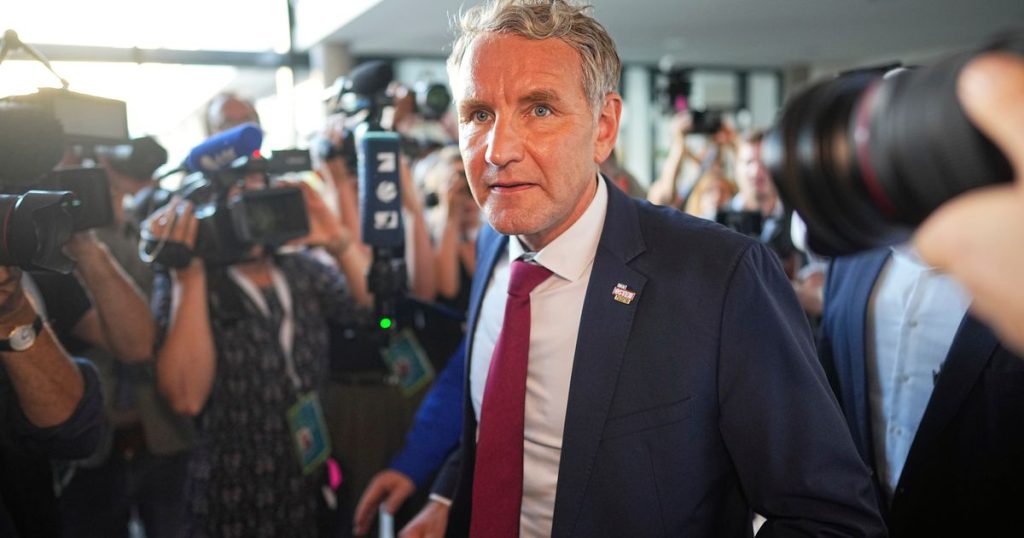In a historic election in post-World War II Germany, a far-right party, the Alternative for Germany (AfD), won a state election in Thuringia. The AfD also performed strongly in neighboring Saxony, finishing a close second to the mainstream conservative Christian Democratic Union (CDU) in both states. The success of the AfD has raised concerns due to its openly right-wing extremist positions. Other parties have vowed not to join AfD in a coalition, but the party’s strength will complicate the formation of new state governments and might lead to unusual coalitions.
A new party founded by a prominent leftist, the Sahra Wagenknecht Alliance (BSW), also made a significant impact in the elections, adding another layer of complexity to the political landscape. The dissatisfaction with the current national government and issues such as immigration and skepticism towards German military aid for Ukraine have played a role in the rise of populist parties, particularly in the less prosperous eastern region of the country. The AfD, which is strongest in the east, is under surveillance by the domestic intelligence agency for its right-wing extremist tendencies.
In Thuringia, the Left Party of outgoing governor Bodo Ramelow saw a significant drop in support, losing nearly two-thirds of its backing compared to previous elections. Wagenknecht, a former member of the Left Party who founded the BSW, celebrated her party’s success and expressed hope of forming a government with the CDU while rejecting any cooperation with the AfD. The complicated political dynamics in Thuringia, where traditional party alliances are being challenged, will pose challenges for the formation of new state governments.
The issue of immigration, heightened by a recent knife attack by a suspected extremist from Syria, has become a central focus in German politics. The BSW, a party with left-wing economic policies and a skeptical stance on immigration, has gained traction in the region. The CDU has also intensified its stance on immigration and put pressure on the national government for tougher measures. Additionally, Germany’s role in the conflict in Ukraine, particularly its weapons deliveries to the country, has become a sensitive issue in the east, with both the AfD and BSW opposing such support.
The election results have significant implications for German politics at both the state and national levels. They highlight the deep divisions and discontent among voters, leading to the rise of new and unconventional political forces. The challenges of forming stable governments in the face of such diverse and polarized political landscapes will require parties to navigate complex coalitions and find common ground on contentious issues such as immigration and foreign policy. As Germany prepares for its next national election in a little over a year, the outcomes of these state elections signal a shift in the country’s political landscape and the need for new approaches to governance and policymaking.


